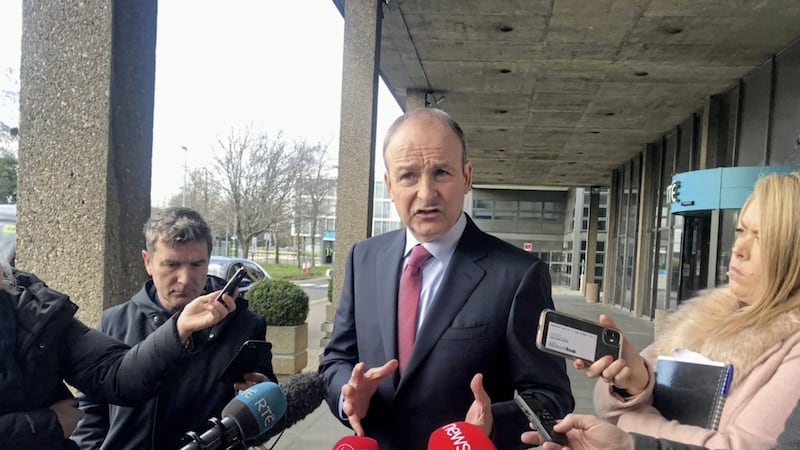It seems certain that in the end, after several weeks of back room deals Micheál Martin will be taoiseach, leading a motley band.
All the polls point in one direction, namely that voters are fed up with Fine Gael after nine years.
The arrival of Martin is not good news for this place, or to be precise, not for northern nationalists. Martin is potentially the most anti-Irish unity Fianna Fáil taoiseach there’s ever been. At least his predecessors paid lip service to the notion. In Martin’s case, as he said in an interview before the new year, he doesn’t even want to think about it for a decade.
His manifesto, which of course you’ve read and memorised, says it all and says nothing. The critical section reads that he will have a team to lead, ‘a formal study and cross-community consultation on a Green Paper to outline how the Irish government should approach handling a unity referendum should circumstances arise where it can be called.’ In the immortal words of Boris Johnson on another topic, this is an inverted pyramid of piffle and Martin knows it.
The first part contradicts the second because the first part resurrects the unionist veto so there can’t be circumstances for calling a referendum. It’s perfectly obvious that any attempt to enter so-called cross-community consultations with the current unionist leadership will be rebuffed. All you have to do is recall Arlene Foster’s overblown reaction to any remarks, however harmless or well meaning, of either Simon Coveney or Leo Varadkar in the last couple of years. So Arlene or her successor provide a cast iron buffer to any progress towards a referendum.
Now, you might ask yourself where does it say any of that in the Good Friday Agreement? It doesn’t of course, but that’s because only the requirement for a northern proconsul to hold a unity referendum is laid down. There are no criteria for establishing the concurrent southern referendum. Failing a government decision, which no government led by Martin will take, only a citizens assembly could recommend one to the government. Martin however, has set his face against one. The Fianna Fáil manifesto also incidentally provides the British government with an excuse to do nothing because there have to be two referendums and it’s impossible to have one in the north if you don’t know the Irish government is ready and willing to play their part in running a corresponding one with an agreed question or questions.
In all of this Martin is far behind young voters in the Republic and northern nationalist sentiment. Martin was a minister from 1997-2011 and Minister for Foreign Affairs 2008-11 but its hard to remember anything he did for this place during his tenure. He seemed more interested in Palestine. Generally he’s out of touch, but it doesn’t seem to matter because people want rid of Fine Gael regardless.
A noted ditherer, Martin is determined not to have Sinn Féin in government because they’d insist on radical change in housing and health which an old hand like Martin would never countenance. For that reason he has concocted spurious reasons for not sharing power with SF while insisting the DUP must share power. Then again, Stormont is only a glorified county council, not a government so it doesn’t matter.
Essentially Martin is disenfranchising SF voters to ensure there will be no change. At the same time he is rubbishing northern nationalists, more than 60 per cent of whom voted Sinn Féin in December, and that in an election where SF stood aside in strategic constituencies and therefore recorded no vote. In the context of disregarding northern nationalists, you wonder what his partner party the SDLP, thinks of the Fianna Fáil manifesto especially since Colum Eastwood was calling for a border poll?
In May 2017 Eastwood said, ‘a border poll is no longer solely the project of Irish nationalism but of pro-European internationalism’. Does he still think so?









